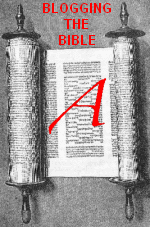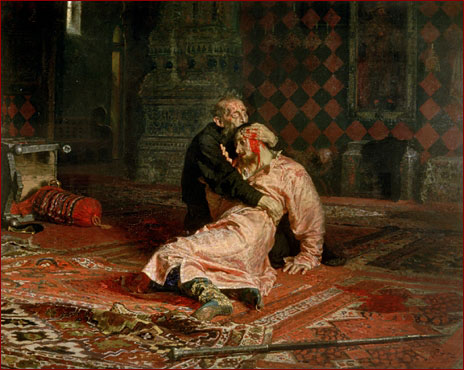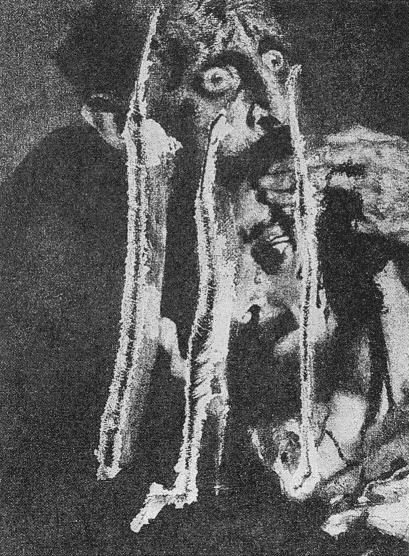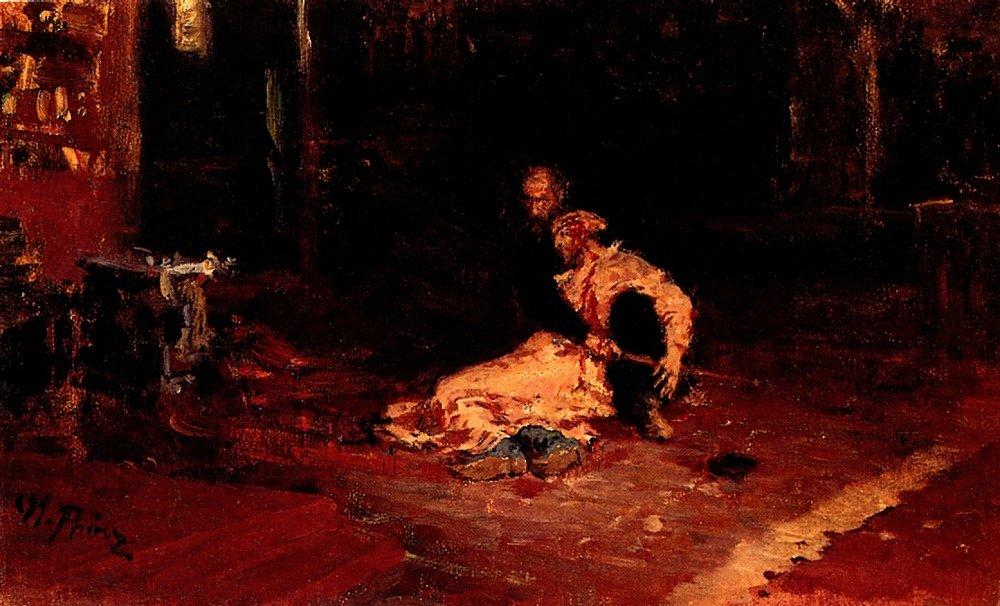 Chapters 13 and 14 form a bizarre series of incidents about the continuation of Saul’s military campaign against the Philistines.
Chapters 13 and 14 form a bizarre series of incidents about the continuation of Saul’s military campaign against the Philistines.
War profiteering
The first is the description of war profiteering by the Philistines (13:19-21). As mentioned before, the book quite suddenly launches into a situation where, contrary to the impression you get from the first chapters, the Philistines are the ones really in control over most of the land and the Israelites are their quasi-vassals. As part of their counter-insurgency measures, they prohibit all Israelites from making or keeping any weapons. Makes sense, really. Except now that the Philistines have been offended and it’s an all-out war, this makes things a bit difficult for Israelite fighters.
The end result is that they end up sneaking around and going to Philistine smiths to buy spears. So a part of the Philistine population is actively profiteering and aiding the enemy of their ethnic group. I don’t know if this passage was meant to have irony but that’s how it struck me. It is mentioned (later on I think) that there were also Israelites who were allied with the Philistines. The authors here present a nuanced political and military situation — a far cry from the cliched conflict of all against all that Biblical stories so often revert to. But interestingly enough there is no judgement passed here on either side. This makes it a refreshing account of conflict. And probably closer to historical reality than “and YHWH gathered ALL the Israelites who slew ALL the Ammonites”. I guess this is why I keep saying Samuel’s the best written narrative in the Bible.
Jonathan’s stupidity
But just when you thought things were getting too naturalistic, supernatural stupidity makes a comeback. This time it’s Saul’s son Jonathan who with his arm-bearer comes to the foot of a Philistine fortress. The Philistines are about to start taunting the two of them and he expects them to say something like “we’ll get you!”. So, as any Israelite for whom YHWH is a daily reality, he makes an announcement that if instead they taunt them asking them to come up to the fortress, it’s meant to be a sign from YHWH that he’ll deliver the whole fortress into their [four!] hands. Because of course a god’s favour is the most reasonable explanation for the taunt “come up here and we’ll show you”…
Still, YHWH seems to love bringing victories to the Israelites when they’re at their underdoggiest. So it works: Jonathan and the other lad take all of them down and are then declared heroes by the Israelite army. So unfortunately stupidity and the endagering of one’s own life pays off. Nobody makes Jonathan scrub ancient-Israelite latrines with ancient-Israelite toothbrushes for going on a fool’s errand. Alas, this is a cognitive bias that persists to this day: in a dangerous situation, someone can do the most reckless thing and if by a fluke it pays off they are likely to avoid any further scrutiny.
Jonathan’s brilliance
Fortunately Jonathan redeems himself straight away. Very soon, the campaign reaches a critical moment and Saul makes a great executive decision. To get the troops to fight more zealously, he places a curse on whoever eats anything before evening until Saul is avenged of his [Philistine] enemies. Yep, like his son he revels in stupidity, this time endangering the whole campaign. All for a show of loyalty, and probably to try get YHWH to do another miracle.
So they’re going through the woods discover — dramatic organ chord! — some honey on the ground. Jonathan wants to eat some but is told about his father’s curse. “Bah, humbug!” he says, mocking his father’s stupidity in forbidding the one thing that might help in battle. He tastes some and shows the troops that this energy boost is doing him a good turn. However none of them follow his example.

Later, Saul asks YHWH (as you do) if they will win the upcoming battle. No answer. Feeling someone must have broken his curse, he starts casting lots to find the culprit (again, as you do). He makes a point of saying that this person will die whoever it is, even if it’s his son Jonathan. Yep: suspense, dramatic irony, this story has it all. Interestingly enough, YHWH doesn’t answer Saul which makes it seem he disapproves of Jonathan’s eating of the honey despite it being the sane self-preserving thing to do. Hmm. Of course YHWH isn’t that opposed to people sacrificing their children for what’s essentially his sake — but then again there’s a rich secular tradition of kings killing their sons so let’s cut him a little slack shall we?

Jonathan is saved only by the troops, who are still in love with his fortress stunt. The commentator Rashi (like most rabbis eager to read a tamer, saner postbiblical Talmudic ethic into the story) says that they did this by releasing Saul from his original oath using the proper procedures of Jewish law. Of course the plain reading is just that they bullied Saul into not killing his son, because he needed support of his army and they could have done something to Saul.
The thing I find interesting is that this whole incident shows YHWH as a moral relativist of the highest degree. According to Rashi, if the troops didn’t release Saul from his oath, he would have had to kill Jonathan under the law and therefore it would have been the “right” thing to do. But now that he happened to have been redeemed (through the fluke of being well-liked), it is now “wrong” of Saul to kill him. A thin thread this YHWH sets up between life and death.





0 Comments